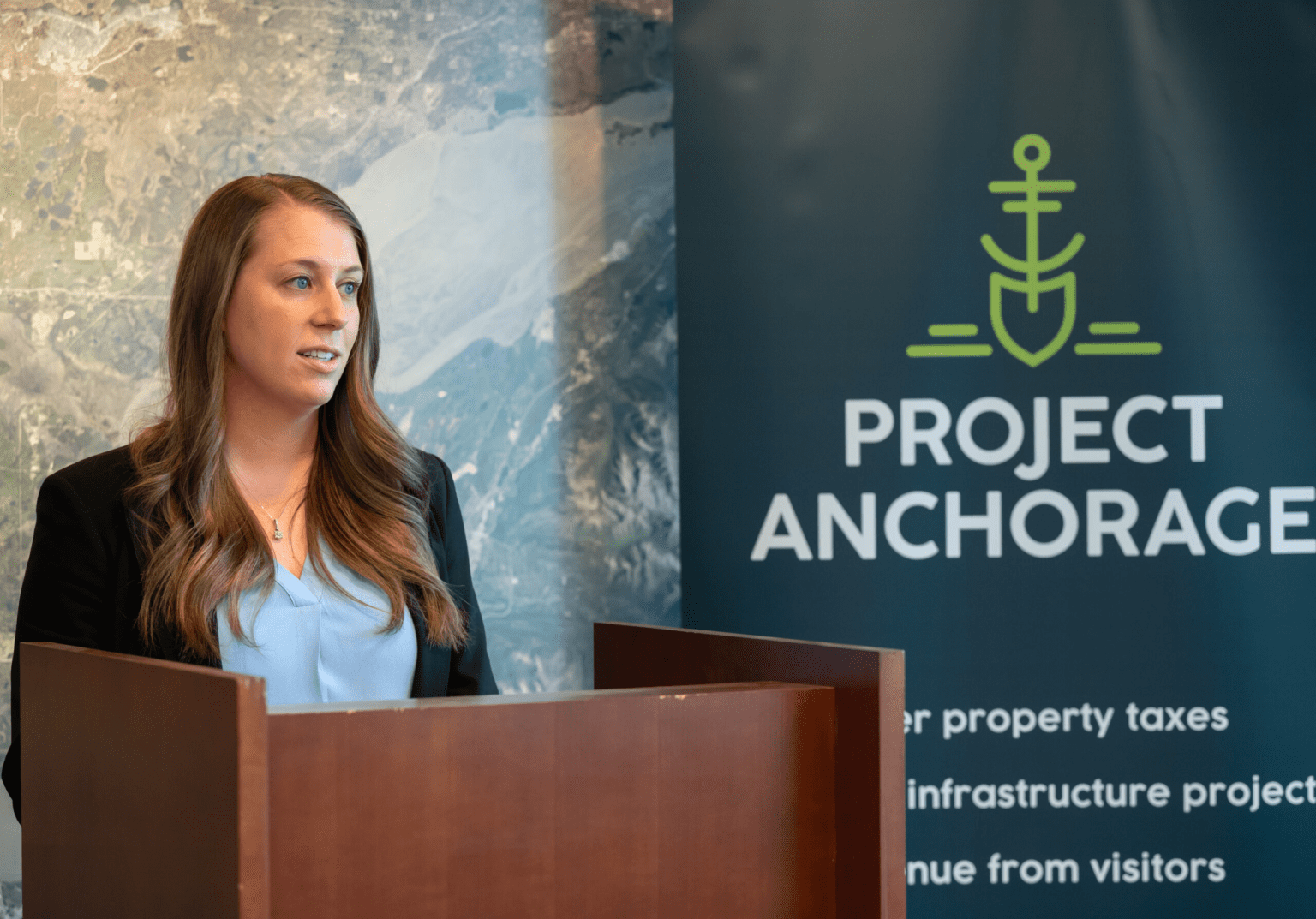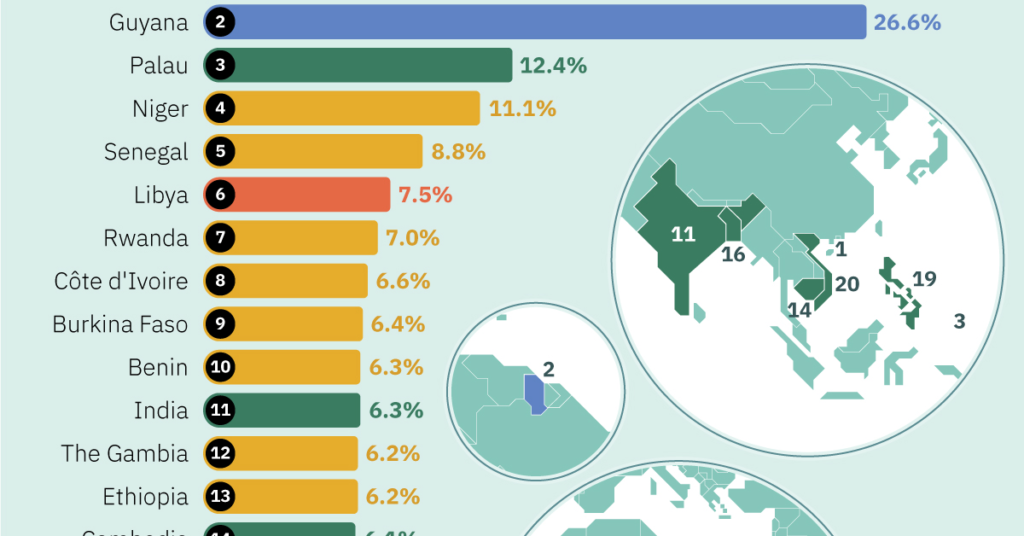Author: David Jones
David Jones is a well-known writer who focuses on economic ideas and current economic issues. He has a talent for explaining difficult economic topics in a clear and understandable way.
Did you know Alaska’s GDP growth has surpassed the national average for the past decade? Over the last ten years, Alaska’s economy has been on a remarkable trajectory, outpacing the national GDP growth rate. With diverse industries and strategic investments, Alaska has emerged as a powerhouse in economic expansion. In Alaska, GDP per capita in 2024 saw a significant increase, reflecting the state’s economic growth. This article will give a detailed overview of Alaska’s GDP, growth trends, and strategies. Alaska GDP Growth Overview Alaska’s GDP has shown steady growth, with notable fluctuations due to various economic events. Since statehood, Alaska’s…
Alaska travel companies contribute to the state’s economy through direct and indirect expenditures, job creation, and tax revenue generation. The cruise industry, in particular, is a significant contributor, with Alaska ranking 5th in the cruise industry, generating $1.3 billion or 5.1% of the direct expenditures generated by the cruise industry in the United States. Tourism-related businesses, such as tour operators, airlines, hotels, and travel agencies, receive a substantial portion of these expenditures, with approximately $807 million going to tourism-related businesses in Alaska. Alaska Tourism Industry Economic Impact The economic impact of tourism in Alaska is substantial, with the tourism industry…
An initiative led by the Anchorage Economic Development Corp. has unveiled plans for a new sales tax aimed at easing the burden of property taxes while funding vital public projects. Dubbed Project Anchorage and in development for approximately a year, the proposal is positioned as a catalyst for increased construction and economic vitality. The group believes it could also stem the outmigration that has impacted Anchorage’s workforce. The proposed 3% tax on select items would be in effect for five years, and the public would be invited to suggest projects for funding. To mitigate the impact on lower-income households, essentials…
The global economy is set to grow significantly, with emerging markets leading the way. The latest forecast from the International Monetary Fund (IMF), published in April 2024, shows that many countries will see rapid economic growth in the next five years. The report points out that the top-performing economies are mainly in Africa and Asia, highlighting their strong potential for growth. One important measure in the IMF’s forecast is the compound annual growth rate (CAGR). Simply put, CAGR shows a country’s average annual economic growth rate over a set period, considering the effect of compounding. This means the growth rate…
Alaska’s economy depends on its job rate, which shows its workforce stability. In 2023, the rate stayed at 4.2%, showing Alaska’s ability to handle tough times. Despite a sharp rise to 8.3% in 2020, Alaska’s ability to bounce back showcases resilience. This narrative underscores the state’s capacity to adapt and persevere in challenging times, contributing to a deeper understanding of its economic landscape. This blog looks at how Alaska’s Unemployment Rate impacts businesses and workers. We’ll see how companies cope and how people deal with it. You will also find the Alaska unemployment statistics to understand better how it affects…
The New Fund Anchorage Child Care and Early Education Will Benefit Children, Families, and Employers
In April 2023, Anchorage voters approved Proposition 14, which permanently allocates the municipality’s marijuana tax revenue to support child care and early education programs. This new initiative, called the Anchorage Child Care and Early Education (ACCEE) Fund, represents Anchorage’s most extensive and dependable investment in these areas to date. The timing of this measure was crucial. Since 2019, the number of licensed childcare programs in Alaska has decreased by 20%, and for the first time in two decades, Anchorage has fewer than 200 licensed programs. Families, employers, and businesses are acutely aware that the scarcity of affordable childcare options is…
Something unusual is happening in the oceans. Fish are shrinking globally, and the cause is still a mystery. This phenomenon is observed in salmon near the Arctic Circle and skate in the Atlantic. According to a recent analysis, almost 75% of fish are shrinking globally, and marine fish populations sampled worldwide experienced a reduction in their average body size between 1960 and 2020. A team of scientists, spearheaded by the University of Massachusetts Amherst, recently discovered no physiological evidence to support a prominent theory regarding the shrinking of fish species as water temperatures rise due to climate change. This theory,…
The economic impacts of wildfires in Alaska can be significant. Wildfires have increased dramatically in Alaska, with a notable surge in 2023, leading to economic consequences. Economic Ramifications of Alaska Wildfires 2024 USDA Forest Service Budget Overview The 2024 USDA Forest Service Congressional Budget Justification outlines key statistics related to wildfire management and Forest Service operations. The budget request for the Wildland Fire Management account 2024 is $1,325,886,000, marking a notable increase of $233,100,000 (+21.3 percent) from the 2023 enacted levels. Additionally, the Wildfire Suppression Operations Reserve Fund 2024 is set at $350,000,000, reflecting a $10,000,000 (+2.9 percent) rise compared…
Cities with rapid population growth tend to experience a more significant inflation rate due to increased demand for goods and services. According to a recent analysis by WalletHub, consumer prices in the U.S. rose by 3.2% in February compared to the previous year. Still, these increases were not uniformly felt across the nation. The AP reports that three rate reductions were proposed for 2024, with the first slated for June. However, due to ongoing high inflation, financial markets anticipate only one rate cut this year, scheduled for November, as indicated by futures prices monitored by CME FedWatch. The study conducted…
As one of the largest and most unique states in the United States, Alaska’s economic development strategies are crucial for driving growth and prosperity across the region. With its vast natural resources, strategic location, and diverse industries, Alaska has immense potential for economic advancement. The state has recently implemented various strategies to foster sustainable development, attract investment, and create opportunities for its residents. One critical pillar of Alaska’s economic development strategies are promoting its abundant natural resources. From oil and gas to minerals and seafood, Alaska boasts a wealth of resources that serve as the foundation of its economy. The…
Most Alaskan citizens reside in cities, villages, and clustered groups unfold across the country’s considerable expanse. Much of the land is owned by either the federal government, the kingdom government, or Alaska Native agencies, all of which impose diverse regulations on settlement. Private land possession is debited for just one percent of the nation’s territory except for those entities. Well-known populace centers in Alaska’s economy showcase low to slight density, with expansive stretches of uninhabited land surrounding them. In 2018, Alaska’s gross home product (GDP) reached $53.1 billion inflation-adjusted, barely growing from the preceding 12 months’s $52.7 billion. However, this…
The Tundra Drums is your trusted source for Alaska news, local stories, and important updates from around the world. Our team works hard to share accurate and engaging information that keeps you informed about what’s happening in Alaska and beyond. Whether you want the latest headlines or detailed features, join us as we explore Alaska’s people, culture, lifestyle, and the stories that matter.
All Copyright Reversed | The Tundra Drums
















